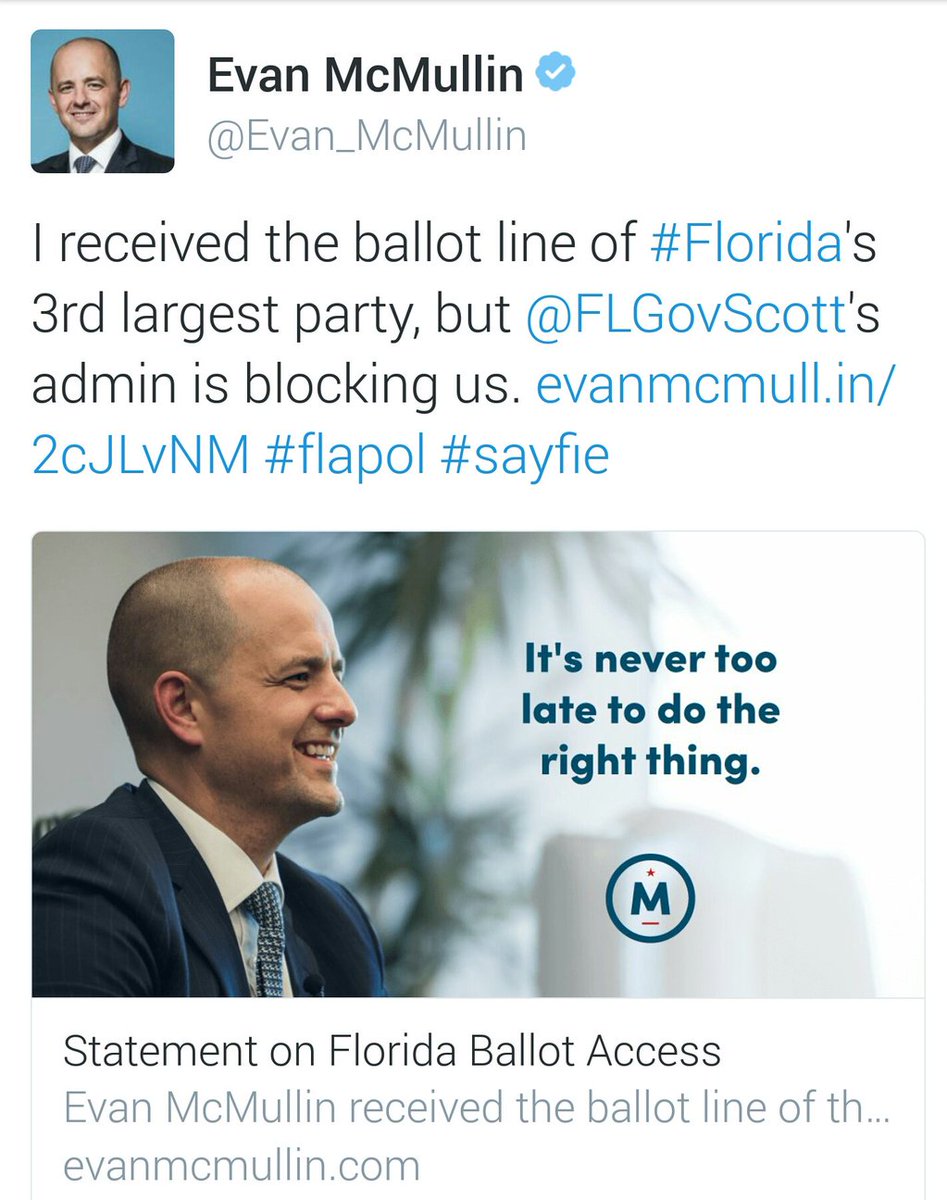Evan McMullin Gratuitously Denied Ballot Access in Florida, Because That's What the Duopoly Does
Gary Johnson is hardly the only third-party candidate to get democracy'd good and hard


As we have seen today, there are three main ways that third parties and their supporters get swatted around by the Republican-Democrat system: 1) Through attempted social shaming that they are preventing the worst candidate from losing; 2) through the excessive caution and social-tribe muscle memory of people who otherwise totally agree with the candidates in question; and 3) through blunt, we're-not-even-masking-it force applied by the Democrats and Republicans who write their own rules of competition. That's what happened to Gary Johnson (and Jill Stein) today with the presidential debates, and it's what happened this month to #NeverTrump candidate Evan McMullin with ballot access in Florida.
Politico has a good new accounting of the complicated scandal. Basically, McMullin was nominated by the Independent Party of Florida, but the Sunshine State's Division of Elections ruled that the party was ineligible because it is not one of 13 "national parties" officially recognized by the Federal Election Commission for purposes of enforcing campaign finance rules. Alert readers at this point may note that campaign finance is not ballot access, and that the federal government is not the state of Florida. Now, what if I told you that the Divisions of Elections reports to Gov. Rick Scott, a Republican who runs a pro-Donald Trump SuperPAC?
This power move is all the more blatant given that Florida as recently as 2011 issued a ruling saying that minor parties should qualify for the state ballot if they simply get their paperwork straight, regardless of what the feds thought. "So Florida and other states were very respectful of Americans Elects and went out of their way to ease ballot access," Ballot Access News super-specialist Richard Winger told Politico Florida. "Now that the parties are suffering in Florida and are less powerful, the state feels it can change the rule with impunity."
More outrage:
"I do not think in any way that this reflects a compelling state interest that justifies exclusion from the ballot," said David Schoen, a New York-based attorney who has worked to help get ballot access for minor party candidates ballot access. […]
"At the last minute, they [the state] change, creating havoc and really hurting folks who spent a lot of time and effort pursuing ballot access," Schoen said. "Very unfair." […]
"The good ol' boy network is alive and well it seems," said Jonathan Hansen, a Nevada attorney whose practice area includes ballot access. "The 'major' parties will do anything to retain power by limiting access to minor parties."
Regardless of what you think of Evan McMullin, this kind of power-abuse is just gross. And it's the status quo. Republicans and Democrats kick third-party candidates in the face for the same reason dogs lick their nether-bits: because they can. Getting onto state ballots as a third-party candidate in this context is downright heroic, which is one of many reasons why the criteria for at least the initial presidential debate should be jumping through enough of the duopoly's hoops to at least be a mathematical possibility in getting 270 Electoral College votes.
Debate Commission Board Member Mitch Daniels is right: "This is awfully important," particularly for those still clinging to the old structures. At some point, power-leaking duopolies who definitionally hate their customers wake up to see what happens when the little people finally control their own destinies. It rarely ends well.


Show Comments (67)